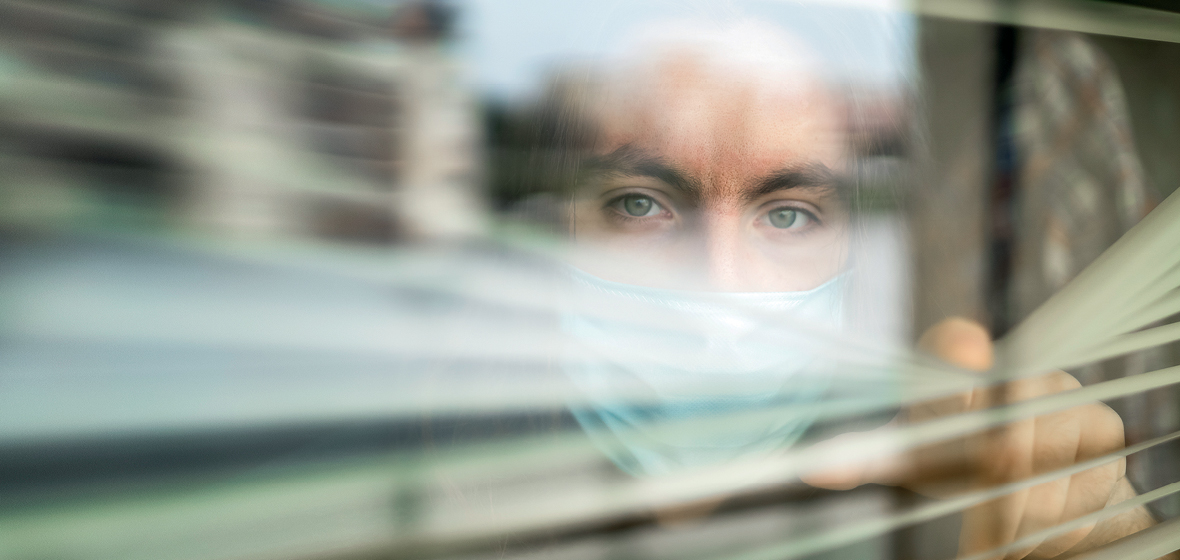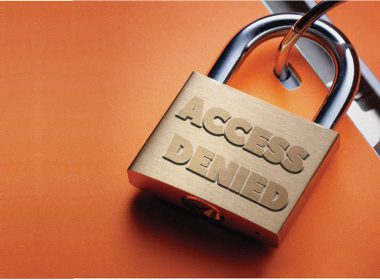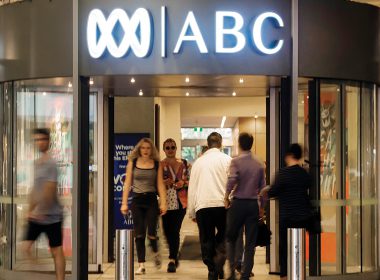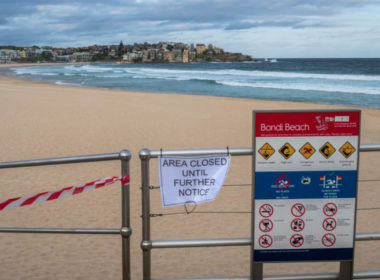Stay home or risk an $11,000 fine. Enter Australia to face two weeks of hotel detention. Severely curb – if not eliminate – your human-to-human contact.
Welcome to the “new normal” of life in the COVID-19 pandemic.
In the space of a few weeks, Australian society has been turned upside down by the challenges of a novel coronavirus that has spread around the world causing mass illness, tens of thousands of deaths, and incalculable economic devastation.
We have raced to “flatten the curve” – to reduce the rate of infection in order to lessen the load on public hospitals and avoid death tolls like those traumatising Italy, Spain, the United States and United Kingdom. “Social distancing” has become part of the national syntax as state and federal governments introduced, and rapidly escalated, laws restricting social contact and preventing groups of people gathering in public.
Freedom of movement disappeared as borders were shut, non-essential travel was banned, and citizens were ordered to stay home other than to carry out limited vital tasks. In NSW alone, no less than 24 public orders and legislative amendments have been marched into effect since 22 March.
“I have never seen anything like this in my lifetime and I am not aware of any previous restriction on movement and basic freedoms, ever, such as we have seen today,” says Stephen Blanks, a spokesperson for the NSW Council for Civil Liberties.
Blanks first relayed his concerns to LSJ on 31 March, the morning after the most restrictive public health order, which orders NSW citizens to stay home other than to carry out limited essential activities, was signed into law.
“Today, being the first day of the new regulations which prohibit leaving home except with a reasonable excuse, marks an extraordinary day in our legal history,” Blanks said.
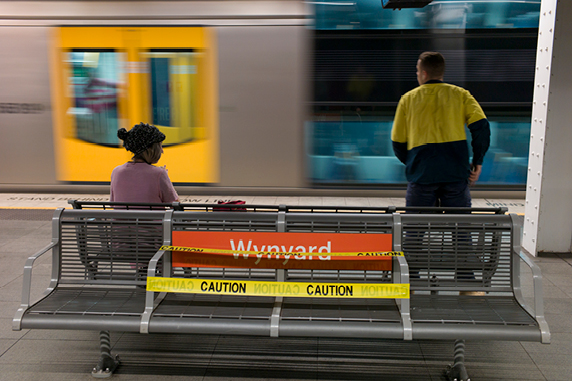
A question of proportionality
Early in Australia’s experience of the global pandemic, medical experts agreed that severe “social distancing” measures were justified to prevent the rapid spread and devastating loss of life that COVID-19 had caused in countries such as China, Italy, Spain and the US. Legal experts, too, have been willing to accept intrusions on civil liberties for the sake of public health.
“The Law Council is supportive of actions that government might need to take to keep us healthy and safe,” Pauline Wright, President of the Law Council of Australia, tells LSJ.
“There has got to be an appropriate balance between keeping us safe and ensuring that civil liberties are protected. This is done by, A, keeping the response proportionate and B, by limiting it in time.”
Wright points out that emergency powers introduced under the Biosecurity Act and the NSW Public Health Act are limited to 90 days by sunset clauses in the relevant legislation that governs them.
However, every new amendment or change to an existing order made under the NSW Public Health Act takes over the previous one’s time limit – effectively resetting the 90-day clock. The order restricting citizens to stay home has been reset twice already.
There has got to be an appropriate balance between keeping us safe and ensuring that civil liberties are protected. This is done by, A, keeping the response proportionate and B, by limiting it in time.
PAULINE WRIGHT
Another concerning issue is that such orders are being signed into law almost daily – often late at night and unbeknown to Australians who are not media- or law-savvy. This threatens the most basic tenet of the rule of law – that the law be clear and known to all.
“You’re in a situation where law is moving so quickly that unless you really know where to look, it’s hard to know what the law is today,” says Blanks. “The website that publishes the public health orders is not easy to find. I couldn’t find it directly. Somebody sent me the link.”
Wright agrees that it has been hard for people to clearly understand their rights and responsibilities in the crisis. She says the Law Council has been particularly alarmed by the federal government’s latest move to fast-track development of the COVIDSafe phone app, launched on Sunday night, to trace citizens who have been in contact with confirmed COVID-19 cases.
The government has assured that any data collected via the app will be stored securely and that the information will only be used by health officials for contact tracing. Federal Health Minister Greg Hunt has said that accessing or using the data for any other purpose would be illegal, and doing so would attract a penalty of up to five years in jail. But legal and cyber security experts warn that the data is being stored by Amazon – a US company that is subject to different laws. Under the US CLOUD Act, data stored by American cloud services can be subpoenaed by the courts, regardless of where in the world that data is stored.
The Law Council has called for the government to release the source code for COVIDSafe to allay fears about privacy settings.
“The privacy settings of any such app will require careful scrutiny, with many in the community understandably hesitant about the collection of their personal information by the government,” says Wright.
“The Law Council is concerned that a number of important policy details have not yet been provided, which will be material to the ability of Australians to give their informed consent to the collection and use of their personal information … It is imperative that a comprehensive privacy impact statement is released publicly, as a matter of urgency, and that Australians are given an opportunity to comment.”
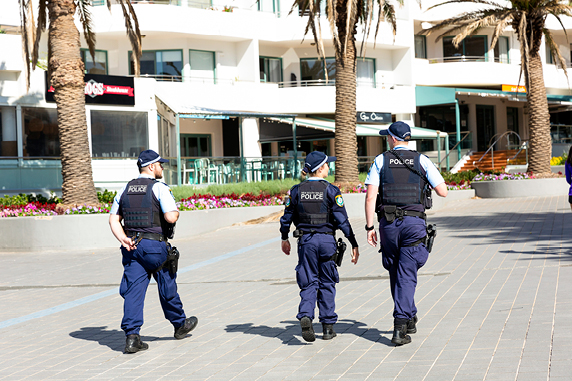
The evolution of a police state
The most recent restrictions on movement, which NSW Health Minister Brad Hazzard signed into law at 10.20pm on Monday 30 March, have attracted the most criticism during Australia’s experience of the pandemic.
Under the Public Health (COVID-19 Restrictions on Gathering and Movement) Order 2020, anyone who leaves home without a “reasonable excuse” faces a maximum penalty of up to $11,000 in fines and six months in prison. While the $11,000 figure has been widely publicised, this is a maximum penalty that must be prosecuted through the courts. The more likely scenario is that police hand out an on-the-spot $1,000 fine – which, although a far lower sum, is not insubstantial. Running a red light or driving at 20km/hour over the speed limit in NSW – offences that arguably could have more severe and immediate consequences – both attract fines that are less than half this cost.
“One of the biggest problems we have with fines in NSW is they are not means tested,” says Samantha Lee, police accountability solicitor at Redfern Legal Centre.
“For some people, a $1,000 fine may not be as burdensome as it is for others. If you live in Point Piper, it might seem a lot less than if you are living in Mt Druitt.”
Perhaps the best illustrator of this point was the wealthy Queensland man who, over the Easter long weekend, received two fines for flying his helicopter to off-limits Moreton Island for a beach picnic, on two separate occasions.
Coupled with the high cost is the problem that appeals for this type of fine – a penalty infringement notice – are rarely successful under the rigid administrative processes of Revenue NSW.
“There is not a high success rate for appealing fines to state revenue,” Lee explains. “If you’re unable to pay, the fine moves into an enforcement order and then a court attendance notice. It’s a slippery slope into criminality.”
For some people, a $1,000 fine may not be as burdensome as it is for others. If you live in Point Piper, it might seem a lot less than if you are living in Mt Druitt.
SAMANTHA LEE
Vague terms for ‘reasonable’ order
The Public Health (COVID-19 Restrictions on Gathering and Movement) Order 2020 restricting citizens to their homes lists a handful of “reasonable excuses” that would give a person right to leave their home, including to obtain goods or services, exercise, or attend work that cannot be done from home. The list is non-exhaustive, but many groups have expressed frustration with the lack of guidance from government on situations like visiting a long-term partner, travelling to a location for exercise, or what constitutes “essential” shopping.
“One of the key problems has been that the order made under the Public Health Act is in such sparse and general terms that it leaves a huge amount open to police discretion,” says former barrister and Greens Member of NSW Parliament David Shoebridge.
“On issues like, ‘Can you visit your partner?’ and ‘What’s the situation regarding childcare?’, the government has remained quite elusive about these things.”
Shoebridge, who oversees the Young Greens’ police accountability group on Facebook, “Sniff Off”, is collecting a growing list of complaints from NSW residents who have received fines in situations where police discretion has been dubious.
“One man was issued a thousand-dollar fine for eating a pizza alone in his car. He had pulled over on his way home after being laid off from his job, and police knocked on his window,” says Shoebridge.
“In another case, two mothers were walking in a park each carrying an infant – police threatened to fine them for breaking the two-person gathering rule.”
After hearing the mothers’ account, Shoebridge wrote to NSW Attorney-General Mark Speakman to seek clarification on whether infants counted under the two-person gathering rule. Speakman wrote back, in a correspondence sighted by LSJ, confirming that infants do not count. Speakman has also allayed concerns about fleeing domestic violence – confirming to LSJ that leaving the home in a domestic violence situation would be considered an emergency and therefore a lawful excuse.
“But where else has government said that, other than in a private email back to me?” says Shoebridge. “We need a clear set of guidelines as to how these public health orders should operate and how police should be exercising their discretion.”
Lee agrees, warning that leaving police too much room for interpretation can be dangerous.
“I sat in on public inquires at the Law Enforcement Conduct Commission into strip searches,” she says. “What came out quite clearly from those hearings was that, if police are not given clear guidance about the application of laws – particularly laws that are a bit vague in nature – that there will be tremendous inconsistency in application of those laws. And huge possibility that there is unlawful application of laws.”
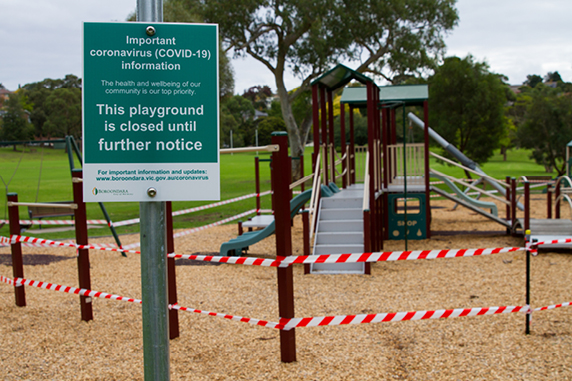
Criminal justice concerns
While some people are mourning their loss of freedom to sit on a beach or visit holiday houses, those caught up in the criminal system have had significantly more pressing legal rights suspended. In recent weeks, it has become apparent that the way in which NSW operates a vital aspect of the rule of law – the right to trial judged by one’s peers – is incompatible with social distancing regulations.
“We can do social distancing in courtrooms, between judges, court officers, jurors and witnesses. But the difficulty is in empanelling juries – where you might have more than 100 people to empanel from,” explains NSW Attorney-General Mark Speakman.
The Supreme and District Courts stopped empanelling new jury trials more than a month ago because of the risk of spreading COVID-19 among the potential jurors crowded into courtrooms. Although the government passed emergency amendments in March to the Criminal Procedure Act, allowing judge-only trials to be conducted via virtual courtrooms where defendants agree to it, many defendants still prefer to opt for a trial by their peers. This simply adds to growing remand numbers in NSW prisons.
Quarterly statistics released in April by the NSW Bureau of Crime Statistics and Research show the number of defendants remanded in custody has increased by 338 in the last 12 months. According to this data, there are currently 8,687 defendants in NSW prisons awaiting trial.
“The week before jury trials were suspended, 150 prospective jurors were called to Nowra, and only 10 per cent of them turned up,” Speakman says.
But the wheels of justice have not come to a complete halt. In fact, Speakman says the COVID-19 crisis has spurred overdue innovation in online courts and hearings conducted via audio-visual links.
“We’ve increased the number of court servers from six to nine – increasing capacity by 50 per cent,” he says. “We have orders placed for another six servers and we expect to get those by the beginning of May. We are re-routing a lot of court and tribunal users onto virtual calls and meetings like Webex. We’re reducing video quality down from 1080 to 720p – which is TV quality – to preserve capability. Bandwidth has increased by 25 per cent.”
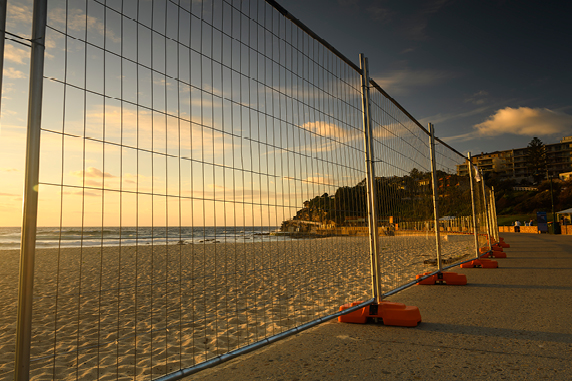
Normal for now, but not forever?
Speakman says he will be watching closely to ensure government powers and restrictions placed on citizens remain proportionate to the COVID-19 crisis.
“We have had extraordinary and draconian limitations put on people’s civil liberties in recent weeks, because of the extraordinary public health risk. I hope the latest measures – restrictions on gathering and movement – can be wound back as soon as possible.”
But he adds that it is a “high stakes” situation, in which one wrong decision could be devastating.
“If we lift restrictions too quickly – it can cause thousands or tens of thousands of deaths. If we are too slow, we risk people’s mental health and even people’s lives.”
It’s why Stephen Blanks and the NSW Council for Civil Liberties believe the public is willing to trust the government’s response and follow such draconian limitations on their freedoms – for now.
“To some extent, the restrictions – given the availability of technology and communication in the home – have less of a social impact than similar restrictions would have had 10 or 15 years ago,” he points out. “People can stay in communication with others via phones and the internet.
“While there is community support of the orders for now, the government and police need to be very attentive to how long that continues for. These laws should not be left in place for longer than is absolutely required.”

